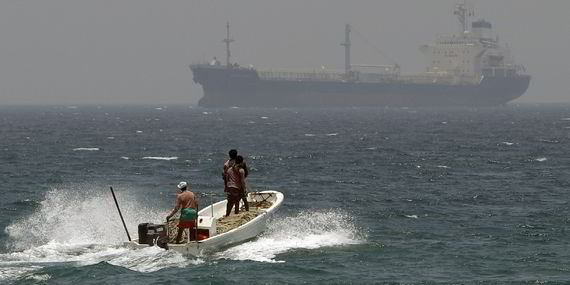In a statement the organisation acknowledged that the investigation of the incident involving the 74,998-dwt Kerala (built 2009) is ongoing but said it is already convinced that the vessel was seized by pirates on 18 January.
“The evidence gathered thus far by the INTERPOL Incident Response Team has allowed the Liberian Registry to conclude that the vessel was hijacked by pirates,” it said in an announcement released Thursday afternoon.
During the hijacking the registry claims the pirates disabled the ship’s AIS and other pieces of communication equipment so that it could not be tracked from shore or satellite and also painted over identifying features like its funnel, name and IMO number.
The organisation, which has been observing the collection of evidence and participating in other parts of the investigation because the Kerala flies the flag of Liberia, also confirmed that the assailants stole over 12,000 tonnes of cargo by undertaking three separate ship-to-ship transfers.
“During the hijacking one crew member was stabbed by the pirates and others were beaten,” it continued, adding: “Liberia will continue working with the authorities in Ghana, Nigeria, Angola and elsewhere in the region in order to bring to justice the perpetrators of this crime...”
Shortly after the Athens-based operator of the Kerala regained contact with the vessel on 26 January an official with the Angolan Navy told reporters that the hijacking was fabricated, presumably to save face amid concerns that local authorities dropped the ball.
A handful of industry observers said they were not surprised by this response, which was made by Captain Augusto Alfredo Lourenco during an interview with Bloomberg, since the oil-rich West African country relies heavily on commercial vessels to conduct trade with other nations.
“There isn’t any risk of pirate attacks in Angola even though we worry about this problem in the Gulf of Guinea to the north,” Lourenco told Bloomberg in a telephone interview. “We are constantly patrolling our waters.”



